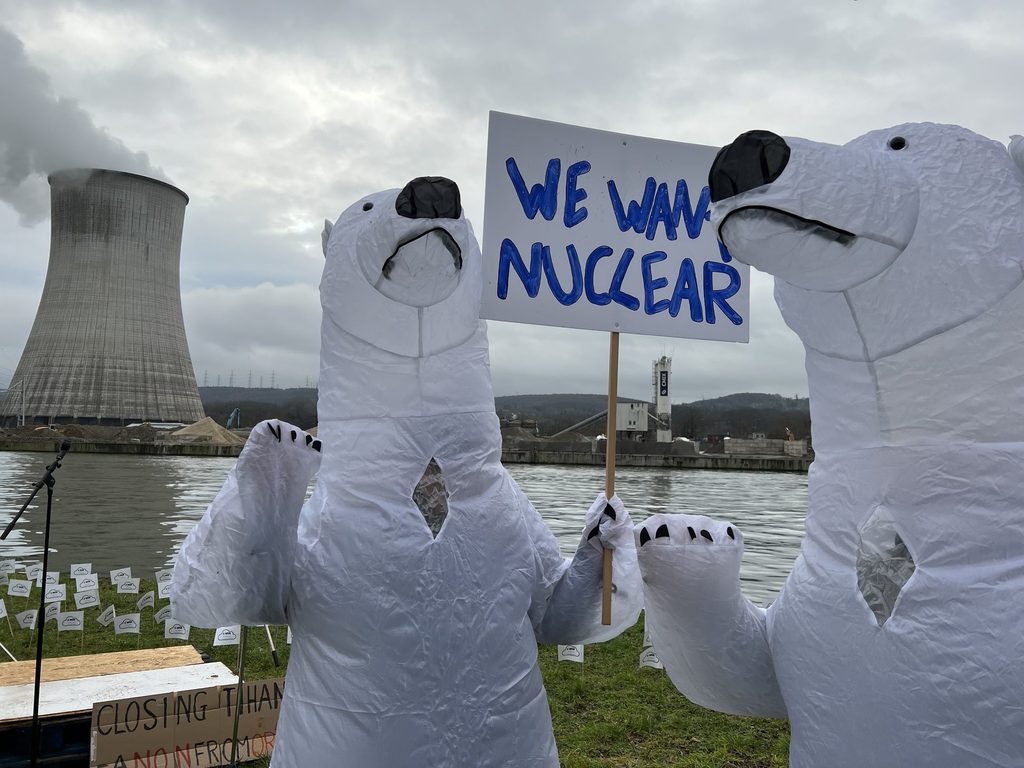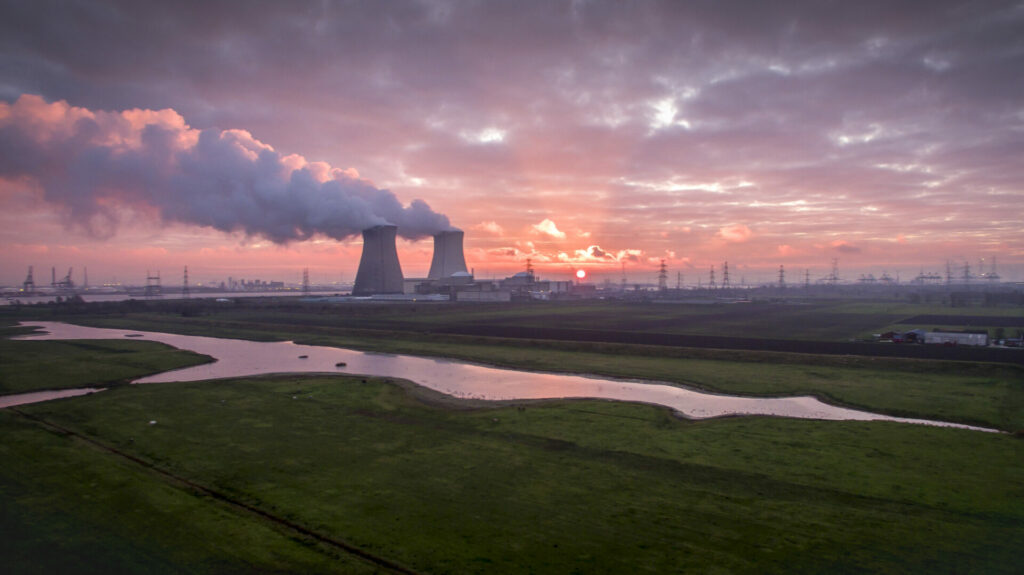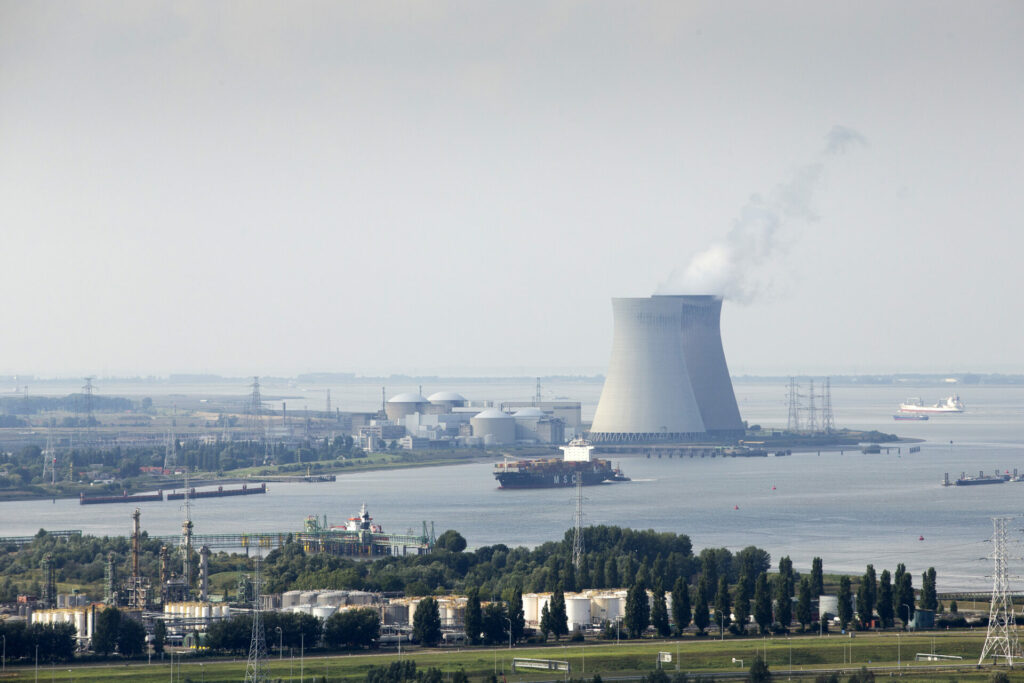The question of whether Belgium keeps its nuclear energy capacity or winds down its power stations in favour of alternative sources has been one of hottest political topics of the past 20 years. Regardless of who forms the next Federal Government, the debate will go on. But how long can Belgium wait to make a decision?
Nuclear power has been a deeply divisive subject in Belgium since a law passed in 2003 envisaged the cessation of nuclear electricity production. Much has changed in the intervening two decades. Renewable technology has advanced and continues to do so, driving a shift towards greater electricity use rather than fossil fuels. And Europe is far less stable than at the turn of the century, with geopolitical tensions presenting major challenges to energy sovereignty. Depending on foreign exports of oil or natural gas looks today a far more risky strategy than it once was.
But the national need for a secure energy supply at favourable prices has not changed; in fact it keeps rising despite efficiency gains. If Belgium and Europe is to preserve its industrial base, having the resources to power it will be crucial.
If demand for energy remains high, attitudes towards how that energy is sourced has shifted greatly. Climate imperatives have seen green parties rise to prominence, from grassroots activism on the sidelines to mainstream political entities with seats in the Federal Government. Tinne Van der Straeten, the outgoing Federal Minister for Energy, is a member of Flemish greens Groen and has never disguised her dislike of nuclear.
But having vowed to put an end to Belgium's nuclear energy capacity, Van der Straeten was forced to make a U-turn as it became clear that the country couldn't afford to lose this valuable component of its energy mix, which still provides over 40% of Belgium's energy needs.

Protesters during an action from Standup4nuclear in January 2023 in Tihange. Credit: Belga/ Didier Defoe
New government, new strategy?
As things stand, the outcomes of the most recent election make some coalitions more probable and the next government will likely involve the Flemish right-wing N-VA, francophone liberals MR, and Flemish socialists Vooruit. Other likely partners are the Flemish Christian democrats CD&V and francophone centrists Les Engagés; both are favourable towards nuclear power.
If these are the main players in the next government, Belgium's nuclear capacity will likely be maintained and possibly even expand, with both N-VA and MR explicitly pro-nuclear power. Vooruit is not opposed to the energy, though would likely demand more stringent conditions to back any agreement.
But even with a concerted political will to keep nuclear power at the heart of Belgium's energy mix, negotiating agreements with the operating company Engie-Electrabel must be done according to strict timeframes and involves multi-billion euro State-backed guarantees.
Belgium's nuclear plants today
Belgium has two nuclear power parks. In Flanders, Doel, which is located on the banks of the Scheldt near Antwerp; in Wallonia, Tihange, situated on the Meuse river just outside Huy.
At present, five nuclear reactors are operating in Belgium: Doel 1, 2, and 4; Tihange 1 and 3. But this is due to change very soon with Doel 1 and 2 and Tihange 1 scheduled to close at the end of 2025. In a landmark agreement at the end of last year, Belgium agreed to extend the lifespan of Doel 4 and Tihange 3 until 2035.
But with just two rather than five nuclear reactors operating, Belgium will be deprived of a significant amount of energy. Although proponents of green energy are eager for renewables to make up the shortfall, the reality is that both offshore wind and solar capacity are far from being sufficient to make up what will be lost from nuclear. Building up these sources will take years and even with them, renewables are less reliable sources (as they are dependent on the weather).

Aerial illustration picture from a drone shows the Doel nuclear power plant, Tuesday 24 November 2020. Credit: Belga / Dirk Waem
Extending reactors. But for how long?
In light of this inconvenient reality, several proposals have been made to boost Belgium's nuclear capacity and ensure affordable, zero-carbon energy.
One of the most popular options is to prolong the lifespan of reactors due to close in 2025. If this were to be done, Tihange 1 would be the most likely reactor to be renovated with modern equipment that would allow it to serve until 2035. Critics of this plan say it would be very costly and require substantial work to ensure the plant conforms to international safety standards.
Another possibility is to extend Doel 4 and Tihange 3 for 20 years rather than just ten. The political parties mentioned are generally favourable to doing this, but it would require reopening negotiations with Engie. When contacted by Les Echos, a spokesperson for the Federal Agency for Nuclear Control (charged with overseeing Belgium's nuclear power facilities) warned that this could see the cost to the State rise significantly to pay for longer-term variables. The agency said that most plans are made for 10-year periods, rather than 20, meaning that changes would likely be decided later.
Furthermore, extending the lifespan of Doel 4 and Tihange 3 for 20 years doesn't solve the problem of losing nuclear capacity.
Related News
- Harnessing the winds of change: The battle for Belgium's green energy shift
- Belgium's green energy ambitions: Could we really go without fossil fuels?
- Europe's green future depends on saving the energy debate from a 'dogmatic sect'
Next generation nuclear
To augment the supply of nuclear electricity, building new reactors is the most promising option. MR campaigned for adding 8GW in new reactors; if carried out, this would make Belgium's nuclear park bigger than ever. Les Engagés have suggested opening two or four new reactors in 2035.
However many new facilities Belgium invests in, construction takes around ten years, though reactors elsewhere in the world have been built more quickly. This lag time means that any decision to build new reactors would need to be taken very swiftly to avoid not having any nuclear power at all in 2035. Given the costs and commitments that such a programme would require, action will be needed almost immediately.
The final option is to build small modular reactors (SMR), a new generation of nuclear technology which though lower in capacity produces less waste and are widely seen as being safer. All the same, galvanising a governing coalition behind this energy will have to be a priority if Belgium is to avoid domestic supply issues in the years to come.

